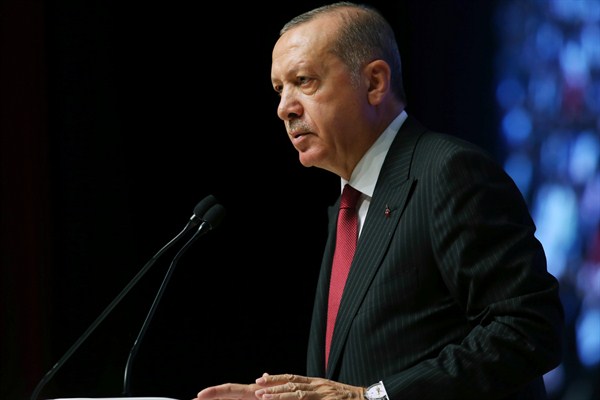Turkey is enduring its most severe economic crisis since the Justice and Development Party, or AKP, took power after sweeping elections in 2002. With a nearly 40 percent decline in the value of the Turkish lira this year, Turkey’s foreign exchange troubles risk plunging the heavily leveraged Turkish economy, and with it potentially the global economy, into a tailspin. On one hand, it’s a typical post-Cold War financial crisis in an emerging market whose economic prospects have always been volatile, with high risks and high rewards. On the other hand, the lira’s collapse is the product of a constellation of geopolitical factors that threaten to rewrite the post-Cold War alliance structures on a global scale, with Turkey at the center of it all.
President Recep Tayyip Erdogan blames this all on geopolitical scheming, as he calls the crisis a foreign-engineered conspiracy to bring his government to its knees. He has put the lira, and its struggles, at the center of what has been a complex moment of transition for Turkey on the global and regional scene. Put simply, Erdogan clearly believes—or at least pretends to believe—that the Americans and their supporters are behind it all. He has accused them of waging “economic war” on Turkey.
The Trump administration has not done anything to dispel or counter this narrative. As the political dispute between Washington and Ankara over Turkey’s detention of an American pastor, Andrew Brunson, worsened earlier this month, President Donald Trump decided to impose sanctions, followed up by doubling tariffs—a blunt policy instrument in any case—on Turkish steel and aluminum exports to the United States. With the diplomatic standoff blending into a currency crisis for Ankara, Trump, Vice President Mike Pence and National Security Adviser John Bolton have all warned the Turks that the worst is yet to come if Brunson isn’t released.

